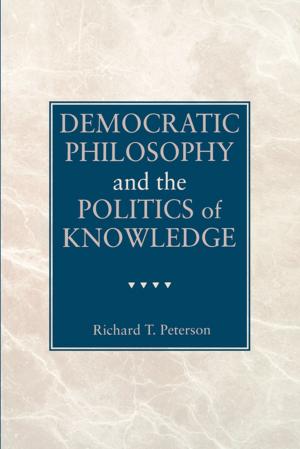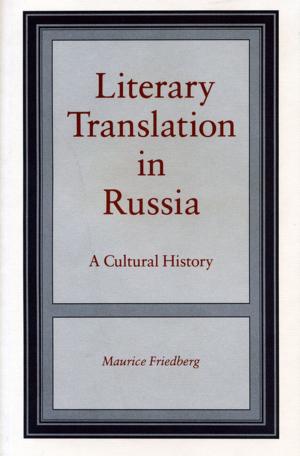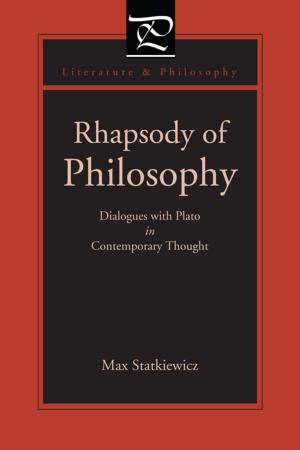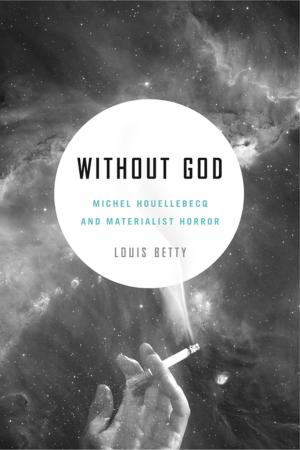The Duplicating Imagination
Twain and the Twain Papers
Fiction & Literature, Literary Theory & Criticism, American, Nonfiction, Entertainment, Drama, Anthologies, History, Americas, United States| Author: | Maria Marotti | ISBN: | 9780271073439 |
| Publisher: | Penn State University Press | Publication: | October 22, 1990 |
| Imprint: | Penn State University Press | Language: | English |
| Author: | Maria Marotti |
| ISBN: | 9780271073439 |
| Publisher: | Penn State University Press |
| Publication: | October 22, 1990 |
| Imprint: | Penn State University Press |
| Language: | English |
Maria Marotti applies a unique mixture of strains of contemporary literary theory to the body of posthumously published works so far published in the Mark Twain Papers series, examining these late, frequently incomplete or abandoned, and usually experimental, works in theoretical light.
Marotti's approach is a text-centered one, semiotic and structuralist in inspiration, and she brings a fresh Continental perspective to bear on an author usually treated biographically, thematically, psychologically. Her concern is with generic definition, and this guides her shaping of the book into four chapters on burlesque, fantasy and dream voyage, romance, and myth. She advances with success the finding, novel in Twain scholarship, that Mark Twain really was experimenting with aspects of fiction ordinarily thought of today as modern or postmodern, and Twain scholars will see that simply being able to consider his various experiments in the terms posed by these theories is itself grounds for changing or at least for reevaluating how they have looked at these writings in the past. Marotti further demonstrates the effectiveness of her terms and terminology for picking up the story of Twain's roots in folklore and oral storytelling, and for grounding these well-known stories in the entirety of his literary development.
Interest in Twain is at an all-time high. This penetrating, authoritative, and lively book has the capacity to appeal to an audience far beyond the narrow range of literary theorists. Marotti's contribution, in addition to the presentation of the Twain Papers as a corpus deserving of the kind of attention that has been directed to Twain's published work, is the promotion of recognition of his as a bold experimenter in literary form, an aspect of his achievement that all too often has been neglected.
Maria Marotti applies a unique mixture of strains of contemporary literary theory to the body of posthumously published works so far published in the Mark Twain Papers series, examining these late, frequently incomplete or abandoned, and usually experimental, works in theoretical light.
Marotti's approach is a text-centered one, semiotic and structuralist in inspiration, and she brings a fresh Continental perspective to bear on an author usually treated biographically, thematically, psychologically. Her concern is with generic definition, and this guides her shaping of the book into four chapters on burlesque, fantasy and dream voyage, romance, and myth. She advances with success the finding, novel in Twain scholarship, that Mark Twain really was experimenting with aspects of fiction ordinarily thought of today as modern or postmodern, and Twain scholars will see that simply being able to consider his various experiments in the terms posed by these theories is itself grounds for changing or at least for reevaluating how they have looked at these writings in the past. Marotti further demonstrates the effectiveness of her terms and terminology for picking up the story of Twain's roots in folklore and oral storytelling, and for grounding these well-known stories in the entirety of his literary development.
Interest in Twain is at an all-time high. This penetrating, authoritative, and lively book has the capacity to appeal to an audience far beyond the narrow range of literary theorists. Marotti's contribution, in addition to the presentation of the Twain Papers as a corpus deserving of the kind of attention that has been directed to Twain's published work, is the promotion of recognition of his as a bold experimenter in literary form, an aspect of his achievement that all too often has been neglected.















